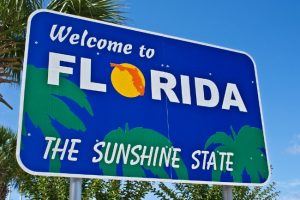 In the world of entertainments, there are new gaming options springing every day. Some of them are more successful than others, but all of them are typically accepted with a good portion of controversy. Daily fantasy sports (DFS) is a thriving industry, which has become a red-hot topic in America. Fantasy contests soared on the news as an important legislative topic in the U.S. More and more states have started to push for regulating DFS, despite the long-standing federal ban on this gambling activity.
In the world of entertainments, there are new gaming options springing every day. Some of them are more successful than others, but all of them are typically accepted with a good portion of controversy. Daily fantasy sports (DFS) is a thriving industry, which has become a red-hot topic in America. Fantasy contests soared on the news as an important legislative topic in the U.S. More and more states have started to push for regulating DFS, despite the long-standing federal ban on this gambling activity.
Some time ago, Florida has added DFS to its wish list. The announcement vexed Florida’s federally recognized tribe the Seminole Tribe, which voiced its discontent with the bill. The tribe’s war against the regulation of the fantasy contests continues. According to the latest news, the Seminole’s top in-house lawyer warned state legislators that their plans to regulate DFS could violate gaming compacts with the state’s tribal casino operator.
In a Tuesday letter to the state officials, the Seminole Tribe made it clear that the regulation of sports contests is to violate the tribe’s exclusive rights and the Seminole is to stop making payments to the state. The letter was signed by the Tribe’s general counsel Jim Shore and addressed to Sen. Travis Hutson and Rep. Mike La Rosa. The letter points out that the bill is to reduce the Tribe’s exclusivity. Furthermore, it states that the tribe is ready to discuss the issue with the state representatives. According to the letter, the bill is to violate Part XII of the 2010 Gaming Compact between the State and Tribe.
Indian Tribes to Fight Fantasy Sports Regualtion
 At present, the state reaps more than $200 million per year for granting gambling exclusivity to the tribe. Supposing that the state to tax daily fantasy sports contests, the tribe threatened to cease payments to the state. Industry insiders believe that the tribe’s warnings may change the officials’ stance on the matter and the DFS regulation may hit the rail. This seems to be the likely scenario as Florida is eyeing DFS regulation since 2015. Two years later, the bill is pending a stamp by the local government.
At present, the state reaps more than $200 million per year for granting gambling exclusivity to the tribe. Supposing that the state to tax daily fantasy sports contests, the tribe threatened to cease payments to the state. Industry insiders believe that the tribe’s warnings may change the officials’ stance on the matter and the DFS regulation may hit the rail. This seems to be the likely scenario as Florida is eyeing DFS regulation since 2015. Two years later, the bill is pending a stamp by the local government.
There are 255 federally recognized American Indian tribes that operate casinos across the country. It is interesting to note that fantasy contests provoked a heated debate among all of them as the different tribes adopted a different approach towards the industry. Generally speaking, the Indian tribes’ opinion regarding DFS legalization is split. Some Indian tribes, which are seeking to expand their casino operations beyond Indian turf, embraced the idea, while others are concerned about the effect of the new type of gambling experience on their operations.



















